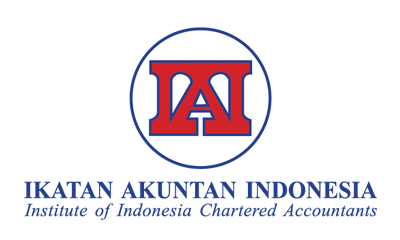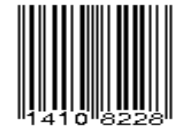Pengaruh Insentif Keuangan Dan Penetapan Tujuan Terhadap Kinerja Individu: Uji Eksperimen Mahasiswa Kewirausahaan
Abstract
Keywords
Full Text:
PDFReferences
Bonner, S. E. & Sprinkle, G. B., 2002. The Effect of Monetary Incentives on Effort and Task Performance: Theories, Evidence, and a Framework for Research. Accounting, Organization and Society, pp. 303-345.
Brown, J. L. & Sukari Farrington, G. B. S., 2016. Biased Self-Assessments, Feedback, and Emplotees' Compensation Plan Choices. Accounting, Organization and Society, pp. 1-15.
Budiarti, L., 2011. Pengaruh Skema Insentif dan Umpan Balik pada Kinerja Pengujian Teori Turnamen. Disertasi, p. Universitas Gadjah Mada Yogyakarta.
Chong, V. K. & Chong, K. M., 2002. Budget Goal Commitment and Information Effect of Budget Participation on Performance: A Structural Equation Modelling Approach. Behavioral Research in Accounting, Volume 14.
Chong, V. & Leung, S. T.-w., 2018. The Effect of feedback, Assigned Goal Level and Compensation Schemes on Task Performance. Asian Review Accounting.
Fessler, N. J., 2003. Experimental Evidence on the Links among Monetary Incentives, Tasl Attractiveness, and Task Performance. Journal of Management Accounting Research, Volume 15, pp. 161-176.
Hartmann, F. & Slapnicar, S., 2012. The Perceived Fairness of Performance Evaluation: The Role of Uncertainty. Management Accounting Research, pp. 17-33.
Kusufi, M. S., 2012. Hubungan Insentif Keuangan Terhadap Daya Tarik Tugas, Usaha dan Kinerja: Studi Eksperimen, Yogyakarta: Program MSi dan Doktor FEB UGM.
Libby, T., 1999. The Influence of Voice and Explanation on Performance in a Participative Budgeting Setting. Accounting, Organization and Society, Volume 24, pp. 125-137.
Lindquist, T. M., 1995. Fairness as an Antecedent to Participative Budgeting: Examining the Effect of Distributive Justice, Procedural Justice, and Referent Cognitions on Satisfaction and Performance. Journal of Management Accounting Research, Volume 7, pp. 122-147.
Nahartyo, E., 2012. Desain dan Implementasi Riset Eksperimen. 1st ed. Yogyakarta: UPP STIM YKPN.
Sholihin, M. & Pike, R., 2009. Fairness in Performance Evaluation and its Behavioral Consequences. Accounting and Business Research, pp. 397-413.
Wentzel, K., 2002. The Influence of Fairness Perception and Goal Commitment on Managers' Performance in a Budget Setting. Behavioral Research in Accounting, Volume 14, pp. 247-271.
DOI: https://doi.org/10.35591/wahana.v24i2.344
Wahana: Jurnal Ekonomi, Manajemen dan Akuntansi
ISSN : 2685-1415 (Online) | 1410-8224 (Print)
Published by Pusat Penelitian dan Pengabdian Masyarakat Politeknik YKPN Yogyakarta.
Jl. Gagak Rimang No. 2-4 Balapan, Yogyakarta 55222
Phone (0274) 560159, 562317, 513413, 563516 Fax. (0274) 561591
 This work is licensed under a Creative Commons Attribution-ShareAlike 4.0 International License.
This work is licensed under a Creative Commons Attribution-ShareAlike 4.0 International License.













